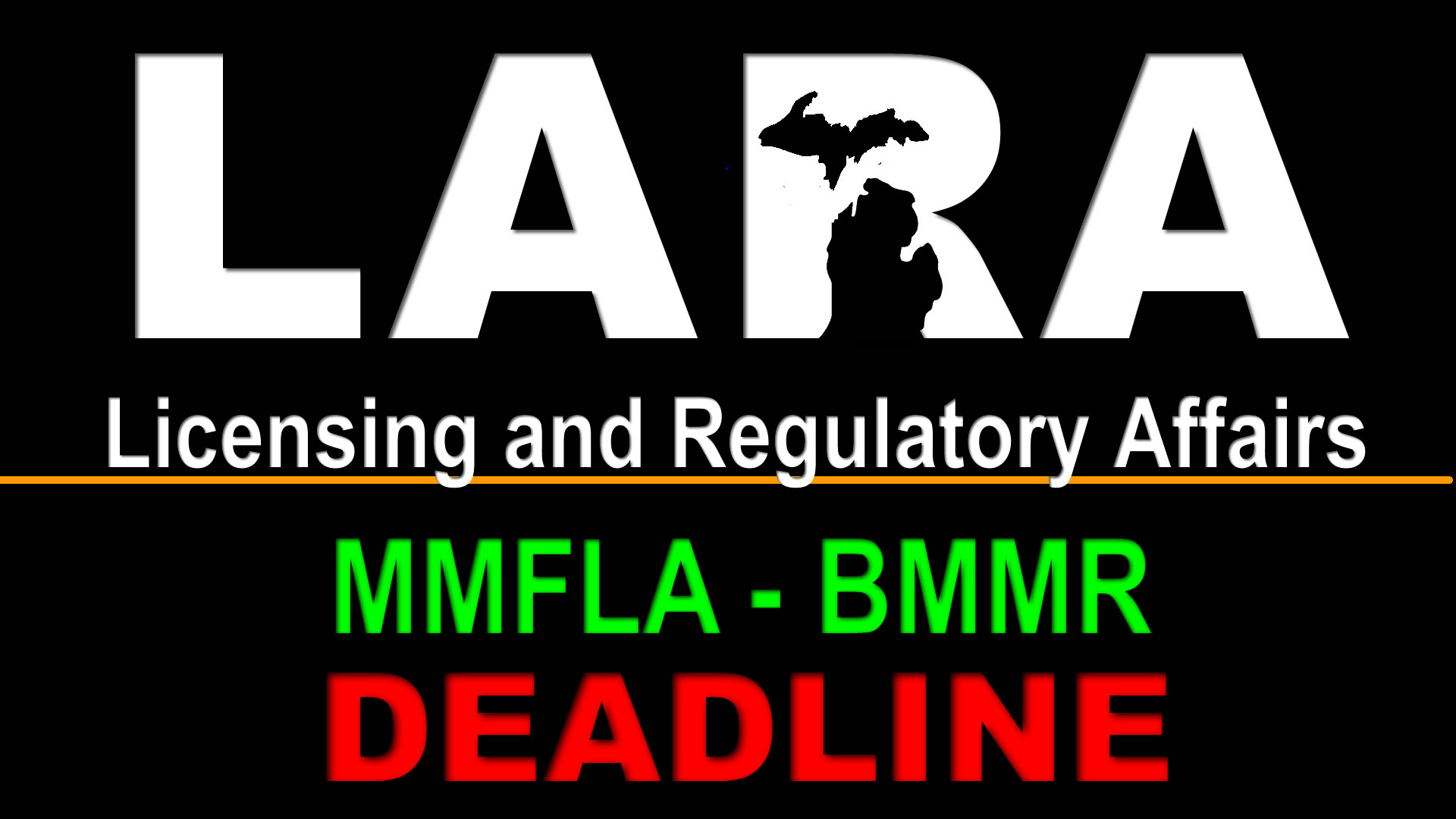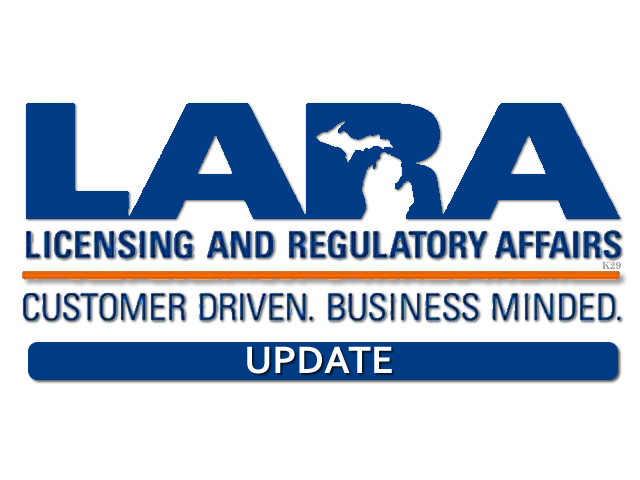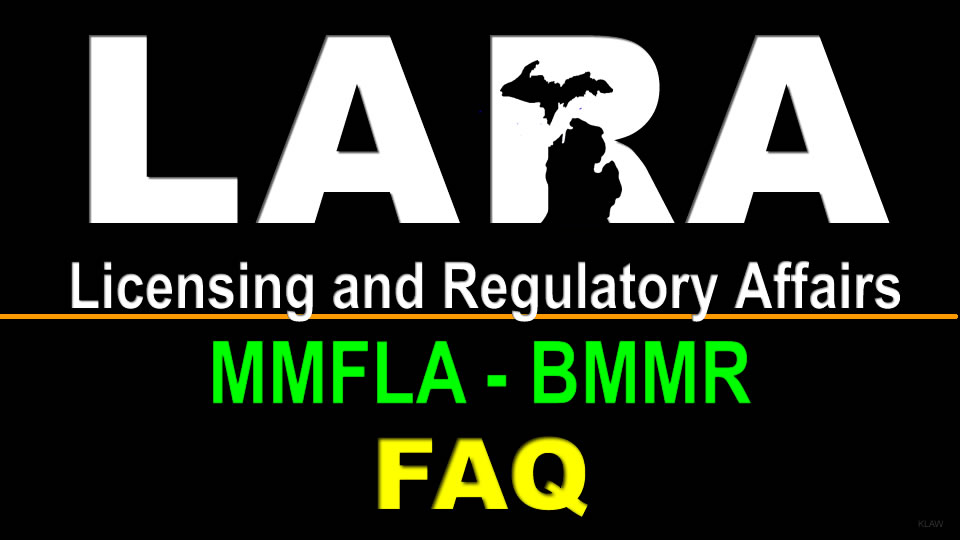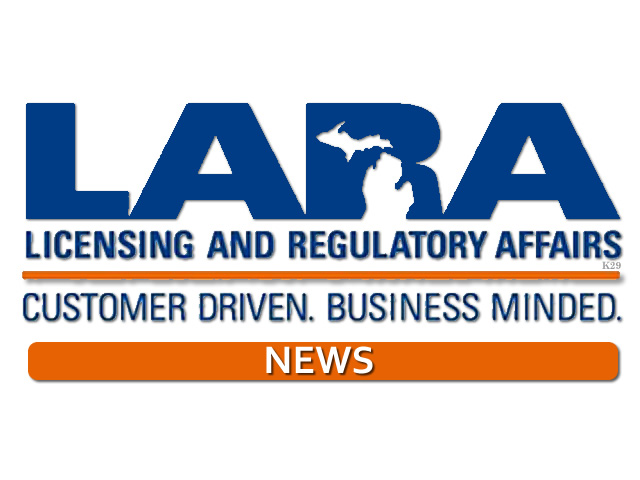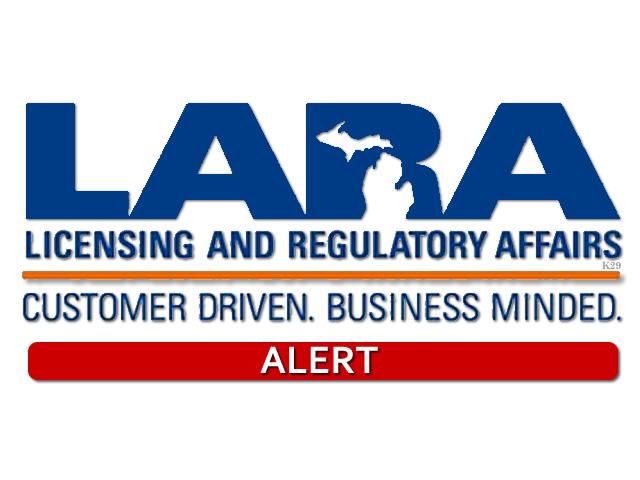
Sep 8, 2018 | Blog, LARA-MMFLA Info
The Michigan Cannabis Business Licensing Deadline
September 15, 2018
The Medical Marihuana Licensing Board’s September 15th deadline for unlicensed provisioning centers to close is approaching fast.
Only about 16 licenses out of a reported 637 applications have been approved.
There are approximately over 200 provisioning centers operating temporarily under state emergency rules. Most will have to shut down on the deadline date.
“The implementation is insufficient,” says attorney Josh Colton of the Komorn Law firm. “Patients need safe access to their medicine. Extending the deadline from June to September was for this purpose. To all of a sudden shut this down is going to leave quite a few people scrambling.”
“Even though I think [MMLB] are doing everything they possibly can, even if they are successful in getting 20 more facilities licensed, it is simply not enough to take care of the patient base,” says Colton.
“I have many cannabis business clients looking for answers” said attorney Michael Komorn who has experience and is recognized as an expert in Michigan Medical Marijuana laws.

Aug 2, 2018 | Blog, LARA-MMFLA Info, Michigan Medical Marhuana Regulation
LARA-MMFLA Update-Per Rule 40, Section 2(a) of the Emergency Rules, a licensed provisioning center may sell or transfer marihuana product to a visiting qualifying patient if all of the following are met:
Update-The licensee verifies that the visiting qualifying patient has a valid unexpired medical marihuana registry card or its equivalent issued in another state, district, territory, commonwealth, or insular possession of the United States that allows the medical use of marihuana.
The licensee confirms that the visiting qualifying patient presented his or her valid driver license or government-issued identification card that bears a photographic image of the visiting qualifying patient.
All provisioning centers within the State of Michigan that are currently operating temporarily with local approval are advised that no patient identification (ID) cards are being issued by the state of Ohio’s Medical Marijuana Control Program (MMCP) at this time. LARA-BMMR has been informed that the State of Ohio Board of Pharmacy will not be issuing valid Ohio patient registry cards until September 2018. Any patient ID card presented from the state of Ohio to a provisioning center in Michigan before September 2018 is considered invalid and constitutes a violation of Rule 40 Section 2(a) of the MMFLA Emergency Rules.
Based on the available data, the following states are currently issuing medical marihuana cards
or registration certifications to patients:
• Alaska
• Arizona
• California
• Colorado
• Connecticut
• Delaware
• Florida
• Hawaii
• Illinois
• Maine
• Maryland
• Massachusetts
• Minnesota
• Montana
• Nevada
• New Hampshire
• New Jersey
• New Mexico
• New York
• Ohio#
• Oregon
• Pennsylvania
• Rhode Island
• Vermont
• Washington
• Washington DC
• West Virginia*
# Has a medical marijuana program, but will not issue patient ID cards until September 2018.
* Has a medical marijuana program, but will not issue patient ID cards until July 1, 2019.
View official LARA release HERE
LARA Site Document

Aug 1, 2018 | Blog, LARA-MMFLA Info, Michigan Medical Marhuana Regulation
Marihuana Grower License
In Michigan a Marihuana Grower is licensed to cultivate, dry, trim, or cure and package marihuana for sale to a processor or provisioning center. A Grower cannot be a registered primary caregiver.
The 3 levels of a Growers’ license is based on the amount of marihuana product grown.
- Class A – 500 plants
- Class B – 1,000 plants
- Class C – 1,500 plants
Marihuana Grower License Requirements
- Applicant, and each investor in the grower, must not have an interest in a secure transporter or safety compliance facility.
- Must employ an individual with a minimum of 2 years’ experience as a caregiver (This restriction ends after December 31, 2021)
- The licensee must not be an active caregiver and must not employ an active caregiver.
- Cultivation must occur in industrial or agricultural zoned areas, or in unzoned areas that meet local ordinance requirements.
How is your plant count determined as it affects your growing limits as a Class A, B, C Grower Licenses?
The MMFLA defines a plant as any living organism that produces its own food through photosynthesis and has observable root formation or is in growth material.
A licensee’s plant limit is based on the type of license issued. Any plant that meets this definition is counted toward the licensee’s plant count.
Can I hold a CPL license and a medical marihuana facility license?
There are no restrictions in the MMFLA that prevent a CPL holder from obtaining a medical marihuana facility license.

Jul 24, 2018 | Blog, LARA-MMFLA Info, Michigan Medical Marhuana Regulation
The hazards that may be present in the marihuana industry highlight the need for careful attention to safety and health at all facets of the businesses.
Not all items listed in this guide may be present at a medical marijuana facility. Conversely, there may be additional ones not listed on this guide that may be present. This guide is intended to provide a starting point for the identification and control of occupational safety and health hazards in this evolving industry.
Identifying and controlling workplace risk begins with an effective Safety and Health Management System.
Some Potential Safety and Health Hazards
- Carbon dioxide used to enrich growing environment.
- Chemicals used as plant nutrients.
- Chemicals used to clean and sanitize equipment.
- Chemicals used to extract essential oils from plant materials.
- Dusts from growing or processing environments.
- Noise from growing and processing equipment, i.e. generators or processing machinery.
- Air contaminants (e.g., carbon dioxide)
- Respiratory protection
- Fire suppression systems
- Labeling
- Employee training
Read the entire release here
Komorn Law has represented numerous clients through the legal chaos of starting up a business in the Michigan Medical Marihuana Industry.
Contact Us For More Information.
800-656-3557

Jul 19, 2018 | Blog, LARA-MMFLA Info, Michigan Medical Marhuana Regulation
LARA-MMFLA – ADVISORY BULLETIN
July 17, 2018
This advisory bulletin does not constitute legal advice and is subject to change. Licensees are encouraged to seek legal counsel to ensure their operations comply with the Medical Marihuana Facilities Licensing Act and associated
Emergency Rules.
30-Day Transition Period (Emergency Rule #20)
Emergency Rule 20 allows for a transition period of 30 calendar days during which marihuana product can be entered into the statewide monitoring system to ensure statewide tracking. These 30 days begin on the day a state operating license is issued to a licensee for the first time (the only exception is for additional licenses issued to the same license holder for a stacked license after a first license has already been issued).
Within those 30 days, a licensee shall:
- Comply with ALL testing requirements as prescribed by the act and rules, including moisture content, potency analysis, foreign matter inspection, microbial and mycotoxin screening, chemical residue, metals screening, residual solvents levels and water activity.
- Record all marihuana product in the statewide monitoring system and tag or package all inventory that has been identified in the statewide monitoring system.
The above requirements pertain to all marihuana and marihuana-infused products remaining in inventory at the time of licensure.
After the 30-calendar-day period, any marihuana product that has not been identified in the statewide system under these rules and the Medical Marihuana Facilities Licensing Act (MMFLA) is prohibited from being onsite at a marihuana facility.
A violation of this rule may result in sanctions and/or fines. At any time during this 30-calendar-day period, and thereafter, a marihuana facility is subject to inspection.
Additional information relating to the statewide monitoring system can be found in the This advisory bulletin does not constitute legal advice and is subject to change. Licensees are encouraged to seek legal counsel to ensure their operations comply with the Medical Marihuana Facilities Licensing Act and associated
Emergency Rules.
MMFLA Sections 501 and 502 provide that growers and processors must use a secure transporter to transport marihuana unless the facilities are within the same location and public roadways are not used.
Additionally, the MMFLA specifies that – prior to Dec. 31, 2018 – growers and processors have 30 days once their license is issued to transfer marihuana plants, seeds, and seedlings if they are lawfully possessed by an individual formerly registered as a primary caregiver who is an active employee of the grower or processor.
This 30-day period coincides with the 30-calendar-days given for licensees to enter items into the statewide monitoring system.
Read the full Release
Komorn Law has represented numerous clients through the legal chaos of starting up a business in the Michigan Medical Marihuana Industry.
Contact Us For More Information.
800-656-3557
